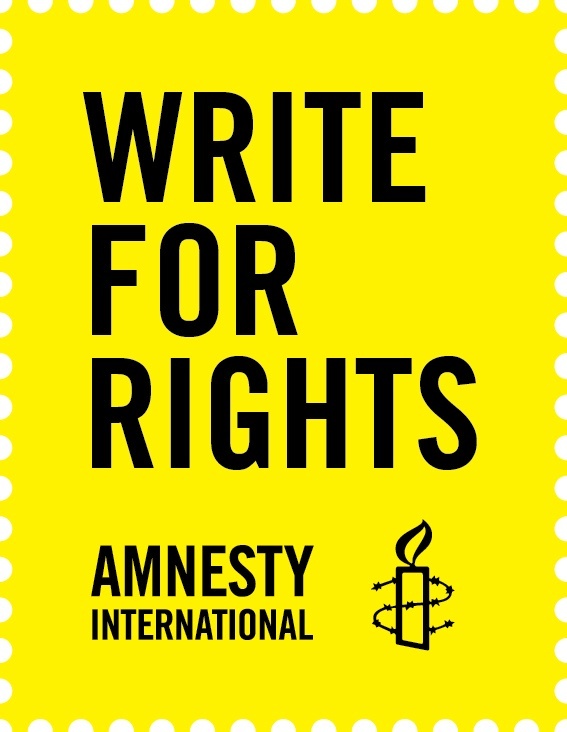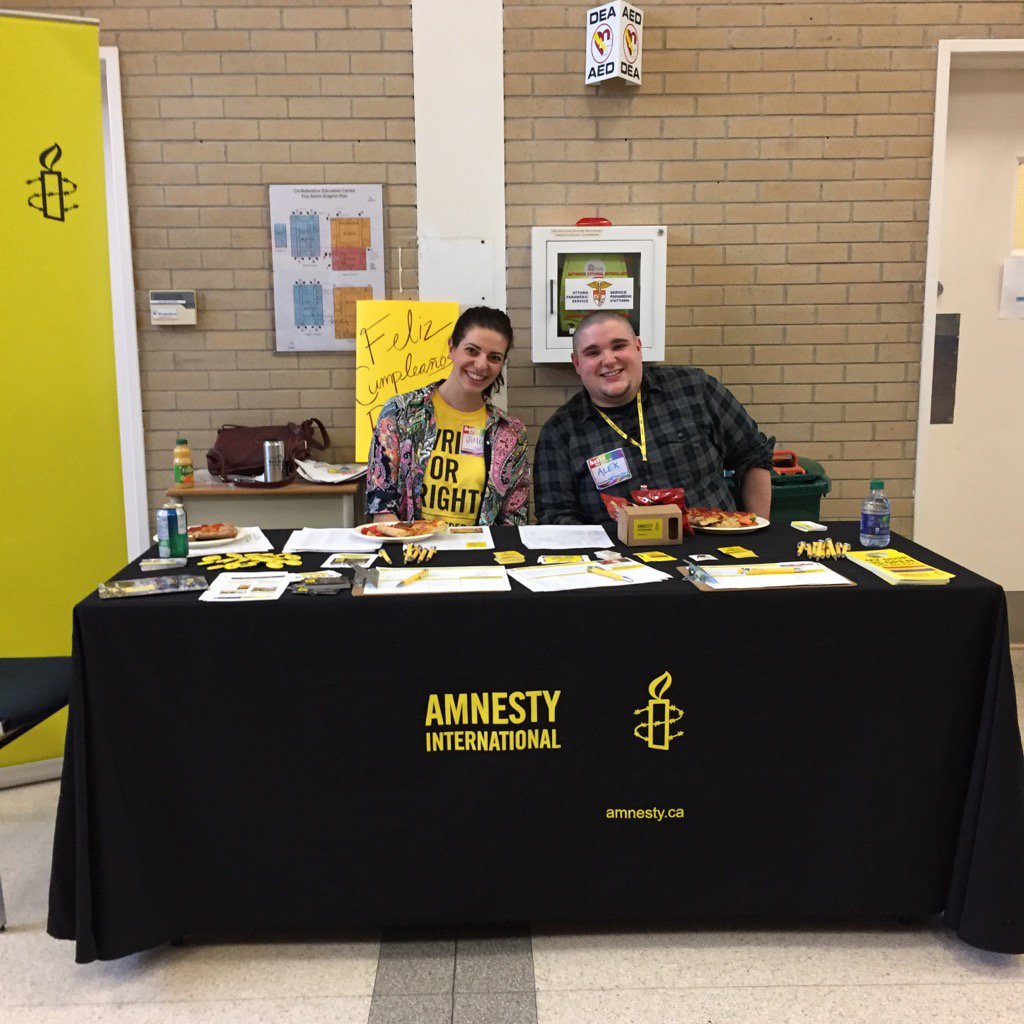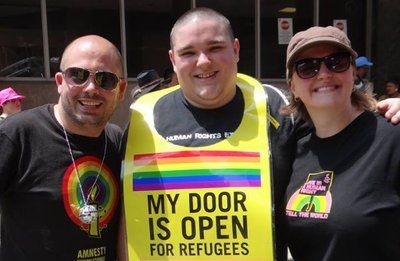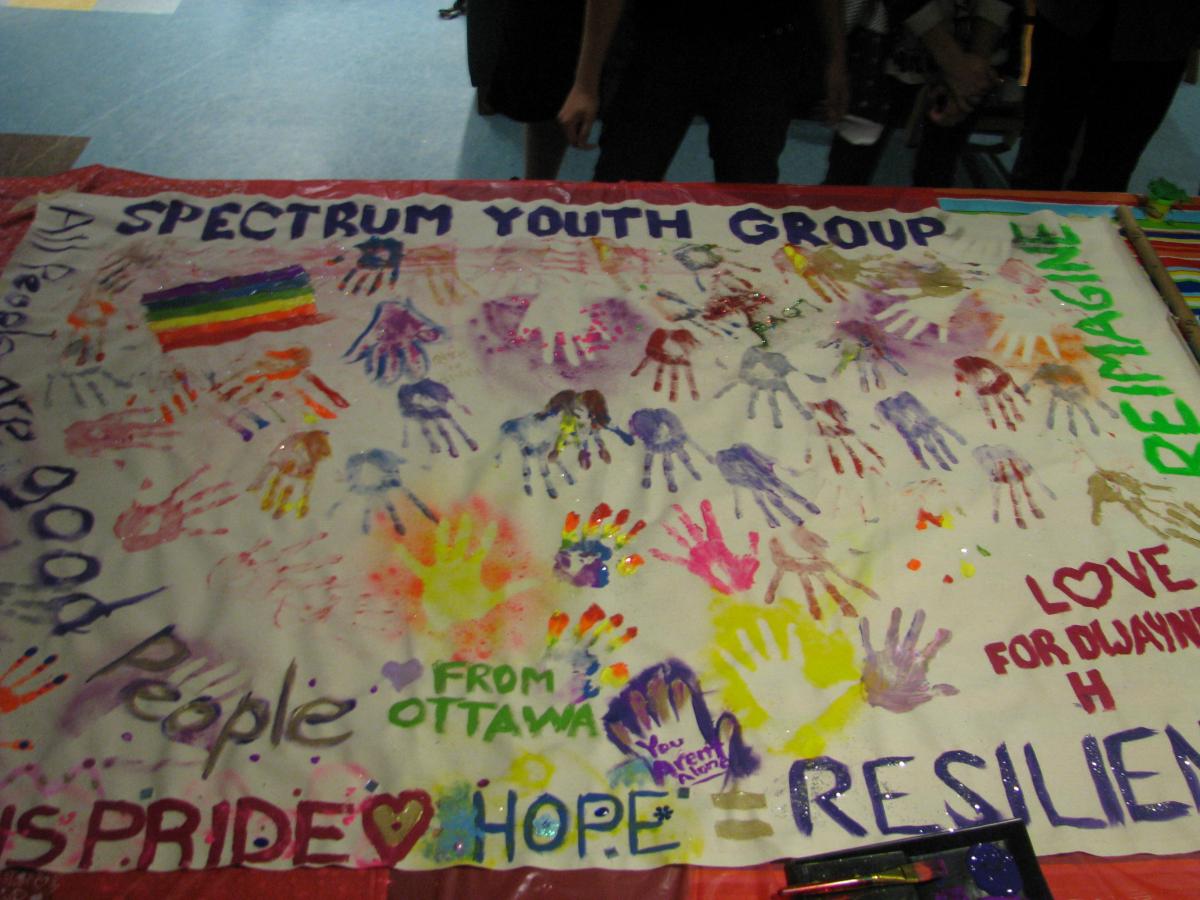In Conversation with Amnesty International’s LGBTI Rights Coordinator Alexander Xavier
Ottawa-based Alexander Xavier is one of Amnesty International Canada’s two LGBTI Coordinators. He has served on Amnesty’s board of directors, and has been an Amnesty supporter since he was in high school. In October 2017, we had a chat with Alexander about his long history with Amnesty and what motivates him to continue so fervantly advocating for LGBTI rights in Canada and around the world.
 Alex, how did you first get involved with Amnesty?
Alex, how did you first get involved with Amnesty?
In high school I became acquainted with Amnesty as I learned about the death penalty. I joined an Amnesty student group, later attended Amnesty’s Human Rights College, and got involved with Amnesty’s student and youth program.
Around the same time I came out and started learning queer and trans history, and realized how many of the things I take for granted are the result of generations of activists who have come before me. I feel like I inherited this legacy of activism, and I want to be a part of building a better world with and for the next generation of queer and trans youth. I was also extremely fortunate to grow up and come of age as an activist surrounded by smart, opinionated women who taught me to advocate for what I believe in!
You’re youthful but no longer a youth yourself. Why is it so important to you to continue engaging young people in Amnesty’s campaigning?
Engaging with young queer and trans people is where I feel like I can make an impact. I was involved in the queer community in high school and university, so many of the groups I’m engaging with now helped me as a youth—or they are groups which I wish had existed when I was younger. I’m so happy to be part of this vibrant, challenging, creative community!
Being a young person involves a lot of being told that your opinion doesn’t matter—that you have to do what you’re told and not question authority—that you’ll understand when you’re older. Youth voices DO matter, and I want to make sure that queer and trans youth have access to the information and tools they need to take action on things that are important to them, and to make decisions about the world they want to live in.
 As one of Amnesty’s LGBTI Coordinators, you’re mobilizing Amnesty supporters to campaign in support of LGBTI rights in Canada and around the world. What activities are you focused on right now?
As one of Amnesty’s LGBTI Coordinators, you’re mobilizing Amnesty supporters to campaign in support of LGBTI rights in Canada and around the world. What activities are you focused on right now?
Much of my work as an LGBTI Coordinator is about being an ally and taking action in solidarity with LGBTI folks in other countries to make sure their rights are protected and respected. We just wrapped up Pride season, where Amnesty groups across Canada took to the streets to show their support for LGBTI refugees. We’re starting to raise awareness of the human rights violations experienced by intersex people. I’m really focused on working with youth in high schools and universities.
The actions we take together truly make a difference! We have made solidarity banners that we’ve sent to LGBTI activists so they know they are not alone, and we see these banners used by these activists to show that they are part of a big, supportive, global community. We’ve had success in actions around individual cases. Last year I spoke at a conference for LGBTI youth and we took action on the case of Rosmit Mantilla, a jailed LGBTI rights activist and opposition politician in Venezuela. Students were asking if people are ever released from prison because of our campaigning, and within weeks we learned that after more than two years Rosmit had finally been released! Being able to tell youth that the action they take matters in someone else’s life is really positive and empowering.
 What keeps you going? What motivates and inspires your activism?
What keeps you going? What motivates and inspires your activism?
The response we receive from activists we do solidarity work with really motivates me to keep going. It lets people know they are not alone. I remember the first time I met another queer person and it changed me to know it wasn’t just me. To be part of something like that is important.
A couple of years ago we sent solidarity letters to an LGBTI rights activist in Uganda, and her response to our letters has stuck with me. She wrote that “Its just really amazing to read personal messages of support from strangers who have never met you nor might never meet you telling you they understand your struggle, telling you that victory will come some day, that your work is not in vain..We don’t always get that kind of support from friends and family. This is a much needed show of solidarity to the Kuchu community in Uganda who now more than ever feel betrayed by leaders that are supposed to make laws to protect them. Public statements have great impact, but personal messages provide us as individuals with strength to keep you going.”
This year’s Write for Rights letter-writing marathon features two LGBTI rights cases—the case of Xulhaz, a co-founder of the only LGBTI publication in Bangladesh who was murdered in 2016, and the case of Sakris, who is campaigning for transgender rights in Finland. I know that Sakris’ case strongly resonates with you. Can you share a little bit about why that is?
Both Xulhaz and Sakris are activists who used their platforms to speak out for their communities. These cases are illustrative of what we’re seeing elsewhere in Egypt, in Chechnya, and in so many other places—LGBTI rights are under threat globally. Xulhaz used his platform as a journalist to raise awareness. Repression of journalists is a recurring theme we see for folks speaking out about such a wide range of human rights concerns, and it’s certainly true of LGBTI rights at the moment.
Working on trans rights is definitely a passion of mine. Sakris is fighting to make it easier for trans people to get ID that reflects their identity. When I came out, Ontario—like Finland—required surgery in order for the government to legally recognize my gender. For more than a decade, the name and gender on my ID didn’t reflect my identity. I’ve been accused of fraud at the bank, when trying to vote in elections, when trying to access social services. I’ve been asked for multiple forms of ID in situations where most people wouldn’t be asked for any at all. While strapped to a backboard in the back of an ambulance, I was interrogated by paramedics about whose health card they’d found in my wallet. Trans activists in Ontario, and across Canada, have worked long and hard to change those laws, and we’ve made a lot of progress—as of July 2017, no province or territory requires surgery to change the gender marker on a birth certificate. I know from experience how dangerous it can be to navigate the world without accurate ID, and how important it is for us to support Sakris and his peers in their fight for recognition and equality.
Please take action in support of Sakris and Xulhaz!
Get involved with Amnesty’s campaigning in support of LGBTI rights in Canada and around the world. Follow us on Facebook and Twitter.













 Alex, how did you first get involved with Amnesty?
Alex, how did you first get involved with Amnesty? As one of Amnesty’s LGBTI Coordinators, you’re mobilizing Amnesty supporters to campaign in support of LGBTI rights in Canada and around the world. What activities are you focused on right now?
As one of Amnesty’s LGBTI Coordinators, you’re mobilizing Amnesty supporters to campaign in support of LGBTI rights in Canada and around the world. What activities are you focused on right now? What keeps you going? What motivates and inspires your activism?
What keeps you going? What motivates and inspires your activism?








